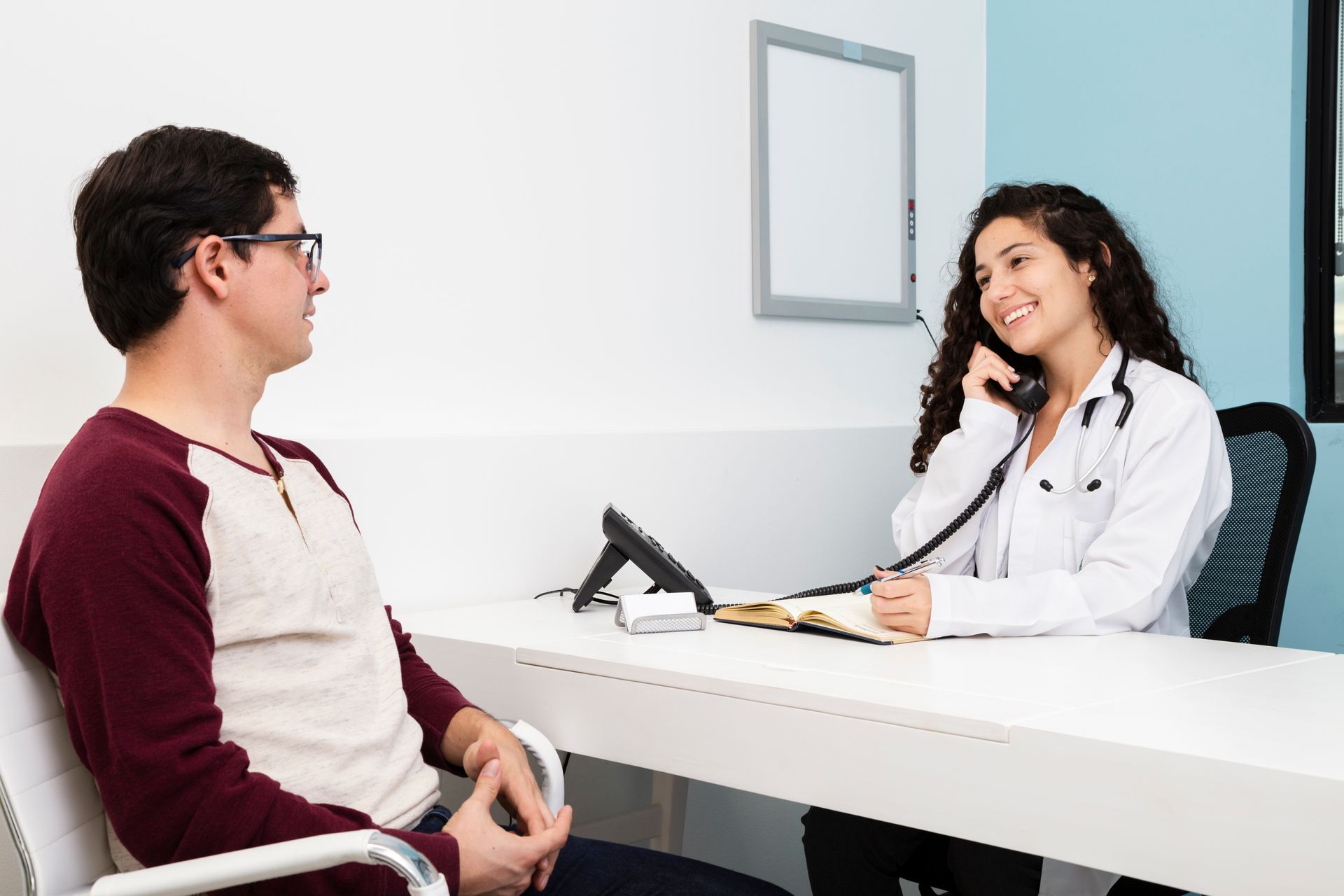Understanding Hemorrhoids Symptoms
If you're experiencing discomfort or symptoms related to hemorrhoids, fissures, abscesses, or fistulas, early diagnosis and targeted care make a significant difference. Our specialists accurately evaluate your specific symptoms, clearly identify the underlying conditions, and recommend the most appropriate treatment approaches tailored specifically to your needs. Depending on the severity and type of your diagnosed condition, our clinic provides comprehensive minimally invasive techniques as well as advanced surgical options.
Minimally Invasive Treatments:
- Barron Ligation (Rubber Banding Ligation - RBL): A non-surgical method that involves placing a band to restrict hemorrhoid blood flow, shrinking the affected tissue until it naturally detaches.
- Laser Hemorrhoidoplasty (ELITE): Advanced laser therapy precisely targeting hemorrhoids for reduced discomfort and quicker recovery.
- THD/ELITE Laser Hemorrhoidoplasty: Specialized laser-guided technique specifically addressing hemorrhoidal issues with significant accuracy and minimized procedure downtime.
- Fissure Treatment: Conservative management using medications, dietary adjustments, or specialized minimally invasive procedures aimed at healing anal fissures.
- Abscess & Fistula Treatment: Effective drainage, complemented where appropriate by laser or surgical methods to fully resolve abscesses and fistulous tracts.
Surgical Treatments (For Severe Cases):
- Minimal Invasive Surgery (MIS): A sophisticated surgical method employing advanced laser techniques to minimize tissue trauma and enable faster patient healing.
- Fergusson and Milligan Hemorrhoidectomy: Traditional surgical method performed for significant or persistent hemorrhoid removal when minimally invasive techniques may not suffice.
Common Symptoms & Possible Diagnoses
| Symptoms | Possible Conditions |
|---|---|
| Rectal pain, especially during or after bowel movements | Anal Fissure, Abscess & Fistulas, Hemorrhoids |
| Bright red blood in stool or on toilet paper | Internal Hemorrhoids, Bleeding Hemorrhoids, Anal Fissure |
| Swollen, painful lump near the anus | External Hemorrhoids, Thrombosed Hemorrhoids, Abscess & Fistulas |
| Persistent anal itching or irritation | Hemorrhoids, Anal Fissure |
| Mucus discharge from the rectum | Prolapsed Hemorrhoids, Internal Hemorrhoids |
| A bulge or prolapse from the anal area | Prolapsed Hemorrhoids |
| Chronic discomfort, pressure, or heaviness in the rectum | Internal Hemorrhoids, Prolapsed Hemorrhoids |
| Painful swelling with pus discharge near the anus | Abscess & Fistulas |
Available Treatments
| Diagnosis | Possible Treatments |
|---|---|
| Anal Fissure | Treating Fissures (medications, dietary changes, minimally invasive procedures), Minimal Invasive Surgery (MIS) |
| Abscess & Fistulas | Treatment for Abscess & Fistulas (drainage, laser procedures, surgical intervention) |
| Internal Hemorrhoids | Rubber Band Ligation (RBL), Laser Hemorrhoidoplasty (ELITE), THD/ELITE Laser Hemorrhoidoplasty |
| Bleeding Hemorrhoids | Laser Hemorrhoidoplasty (ELITE), THD/ELITE Laser Hemorrhoidoplasty |
| Prolapsed Hemorrhoids | THD/ELITE Laser Hemorrhoidoplasty, Fergusson and Milligan Hemorrhoidectomy (for severe cases) |
| Thrombosed Hemorrhoids | Prolapsed Hemorrhoids |
| External Hemorrhoids | Minimal Invasive Surgery (MIS), Fergusson and Milligan Hemorrhoidectomy |

Book Now for Fast Relief!
Gain the relief you deserve by booking an appointment today. Our expert team at ProctoCAN ensures compassionate care and the latest treatments for lasting results. Don't let discomfort hold you back. Experience our professional service that prioritizes your well-being and comfort.
